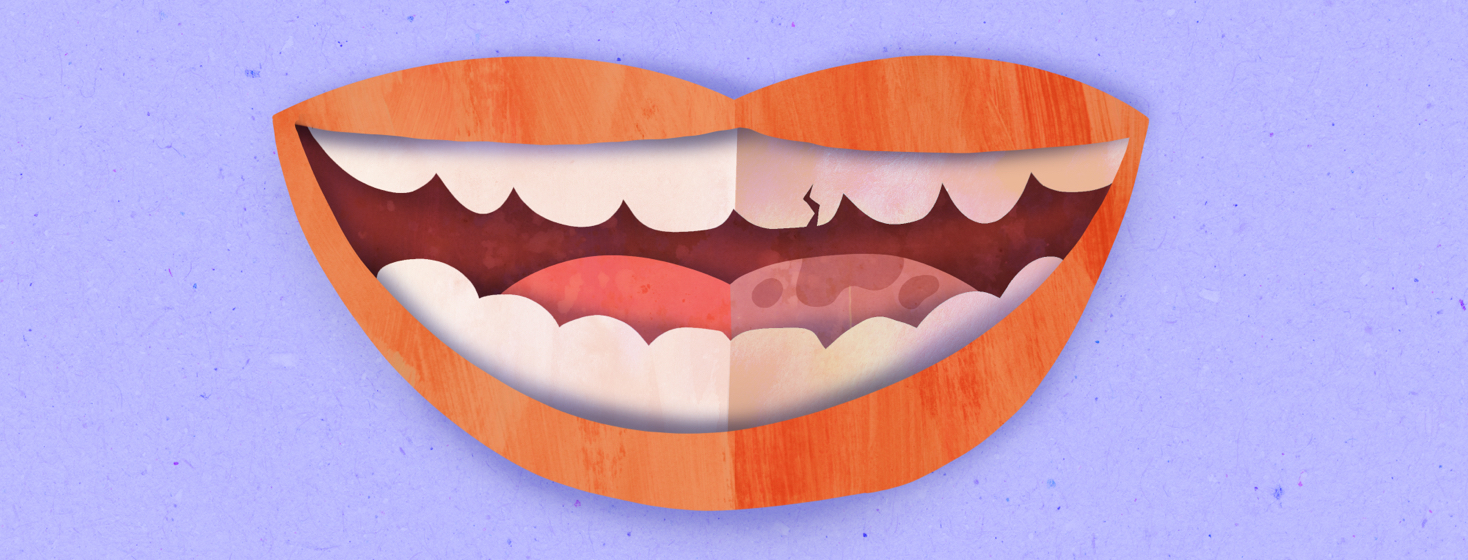My Journey With CPAP Mouth Breathing and Dental Issues
To be honest, I haven’t been to the dentist in a long time. I had several baby teeth and wisdom teeth that they wanted to pull all at the same time. Also, then they wanted to cut my gums and put on braces. A recent trip to see my dentist resulted in learning of some surprising oral health issues from CPAP use and mouth breathing.
Oral health issues from CPAP
When one of those baby teeth cracked, I was able to get it filed down without removing it. Well a few weeks later, it shattered and had to be completely removed.
While doing the exam, my dentist noticed that my back teeth have a lot of wear from my grinding teeth at night. While we were discussing swelling in my gums in the front of my mouth, the dentist was able to tell me that I use a continuous positive airway pressure (CPAP) machine – without me mentioning it!
This or That
Are you more of an:
Effects of mouth breathing on oral health
I had surgery when I was 18 that caused me to become a mouth breather. A biopsy was done through my nose on a cyst. The surgery damaged my nose because it was too small. After that, I had trouble breathing out of my nose, had constant sinus infections, and couldn’t smell.
I honestly didn’t know that mouth breathing was bad for oral health until I was diagnosed with sleep apnea. I didn’t realize that having a dry mouth with my CPAP machine can cause oral health and dental issues. Mouth breathing may actually have many bad effects on oral health and health overall, though the majority of people breathe out of their mouth.1
Here are the effects mouth breathing has had on my oral health:
Gum disease and swelling
It was shocking to learn that the air when my mouth opens at night makes me more likely for gum disease. And, mouth breathing also causes swelling in my gums.
Dry mouth and drooling
Even when I wasn’t using my CPAP, I noticed that I would wake up with a dry mouth from mouth breathing and drooling.
How I addressed my dental issues
After my dentist visit, I began doing many things to address the dental issues caused by my CPAP mouth breathing.
Deep cleanings
My dentist recommended using a Waterpik and getting a deep cleaning done. This helps to prevent the gum disease from worsening and to get rid of plaque. For me, 2 separate visits were needed!
Hydration, meds, and a cool humidifier
She also imparted the importance of keeping hydrated and recommended using Xylitol for dry mouth. To help my mouth breathing, I switched to a different mouthwash and started drinking more water during the day to make sure I stayed hydrated.
Also, I put a cool air humidifier in my room when I wasn’t using my CPAP.
Regular dental visits
My advice is to keep up with regular dental appointments. A dentist may recognize oral health issues from CPAP use and provide tips to prevent damage.
Prevention tips to help oral health
Using the CPAP has some side effects but prevention can be better than waiting until it gets bad. I learned that mouth breathing, while having air blowing in my face, isn’t ideal and may contribute to dental issues.
Chin Straps
If you are a mouth breather, they have different types of chin straps that can be helpful to keep your mouth closed during the night – if you can tolerate it. Personally, I can not tolerate using chin straps.
Adjust humidifier
Also, make sure to use and adjust your humidifier to help with dry mouth that can cause further dental problems.
Myofunctional therapy
My dentist also suggested myofunctional therapy which helps you focus on breathing through your nose. As someone with chronic health issues, the idea of 1 more therapy or 1 more doctor right now isn’t something that I want.
I understand it can be beneficial to breathe from my nose during the day and at night. When I looked into most myofunctional therapy in my area, I learned that it is not covered by my insurance.
Understanding the side effects of using CPAP
Using a CPAP may have many side effects. Understanding that CPAP makes me more likely for gum disease has made me get better at taking care of my mouth, going regularly for exams, and looking into options that I can use with CPAP for teeth grinding.
What are some of your best tips for good oral health while using your CPAP?

Join the conversation